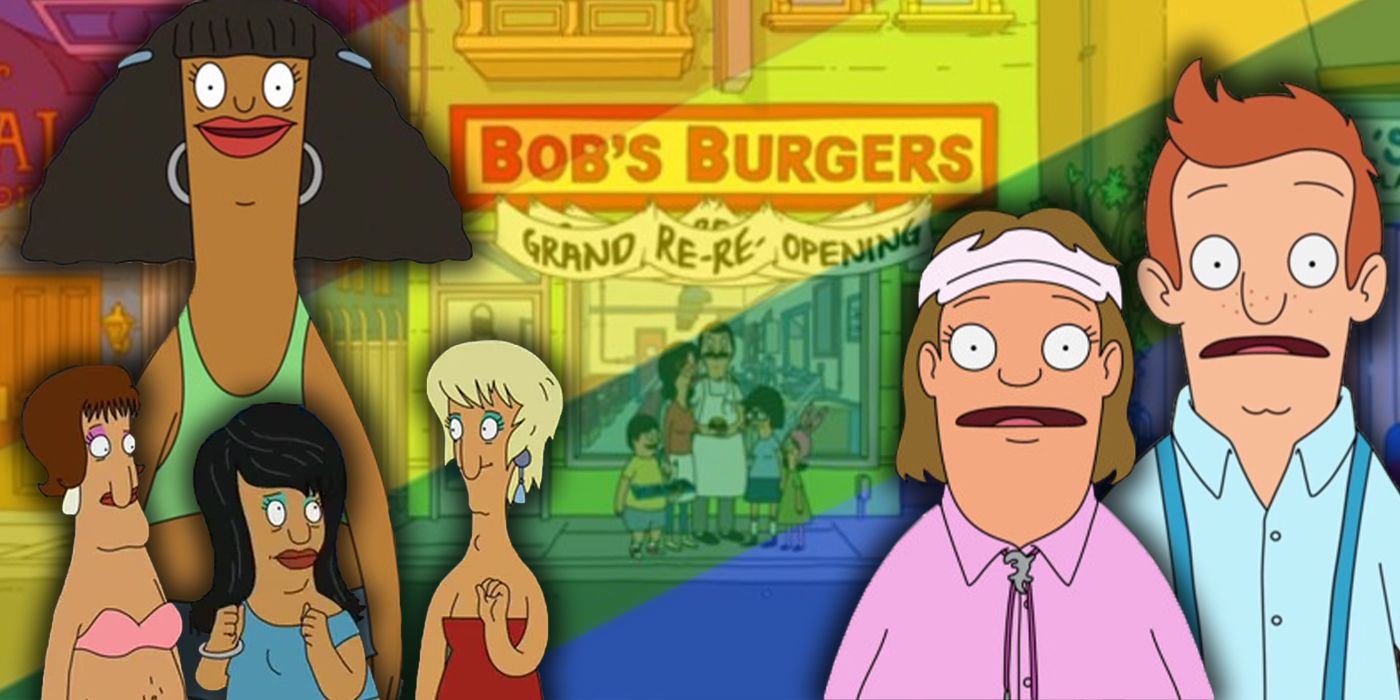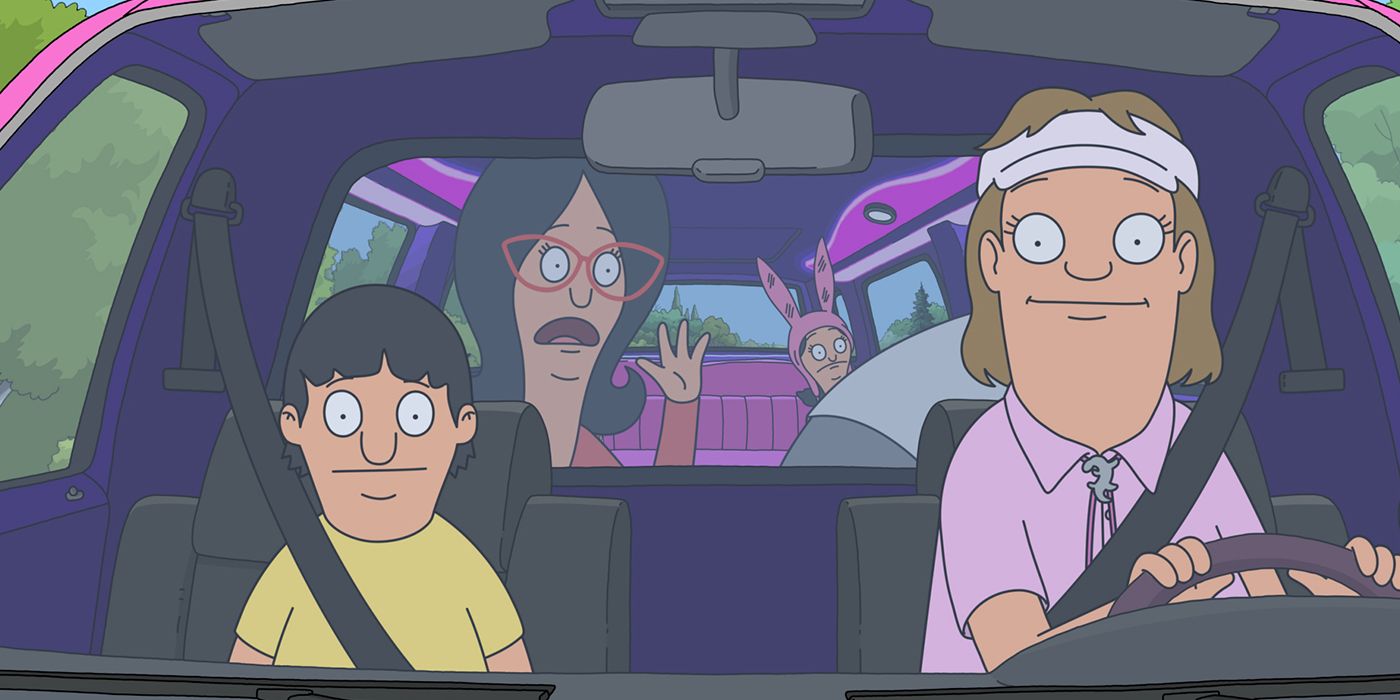Over the last few years, a number of animated series have received high praise for their positive depictions of LGBT characters. Fan favorite series like Adventure Time, Steven Universe and the modern reincarnation of She-Ra have all been applauded for their LGBTQ inclusivity and messaging. But there is one animated series that has put 10 seasons of cartoon brilliance into the world and has done more to normalize its LGBTQ characters than any other series. That show is Bob's Burgers.
Created by Loren Bouchard, Bob's Burgers focuses on the Belcher family as they try to make the patriarch's dream burger shop a successful reality. The main family consists of Bob, the low-key father, and his wife Linda, who is the opposite of Bob in that she's more expressive. Their children, Tina, Gene and Louise are all smart, creative and disturbing in their own unique and frightening ways.
On the surface, Bob's Burgers seems like a series about a relatively stereotypical family pursuing the American dream. It's a scenario that TV viewers have seen in many sitcoms over the past several decades, but not many of these series have portrayed LGBTQ folks in the best light. That's the brilliance and beauty of Bob's Burgers -- the LGBTQ community is hiding in plain sight, and is just accepted as normal to the Belchers.
No one knows exactly where Bob and his family live. Based on context, their fictional town is a seaside community either in Long Island, New York or somewhere on the Jersey Shore. Early on in the series, the creators began to introduce LGBTQ characters -- specifically, a group of trans women who are sex workers -- in the Season 1 episode "Sheesh Cab, Bob?"
In this episode, Bob takes on a job as a cab driver, and the group of trans women quickly become Bob's favorite regulars, and he becomes their favorite driver. At one point, they even help Bob take down his nemesis, Jimmy Pesto. The characters do appear in other episodes as the series goes on, mostly as non speaking cameos, but they are still around, and are part of the overall community.
"Sheesh Cab, Bob?" also introduces Marshmallow, an African American trans woman who's also a sex worker. She appears multiple times in the series, having grown to be a family friend of the entire Belcher clan. Bob, in particular, obviously cares for her, having expressed a deep fondness and admiration for Marshmallow on more than one occasion. This alludes to the idea that Bob may possibly be queer himself.
The sexuality of Bob Belcher is certainly up for some debate. While he has never openly dated a man on the series, many viewers have come to the conclusion that Bob is bisexual, even if he isn't fully aware of that fact. There have been more than a few moments when he seemed to be on the verge of confirming it, though he never fully makes the statement. Likewise, some fans believe that Gene may grow up to be gay or bisexual.
Beyond the Belchers and their close friends like Marshmallow, there are a wide array of LGBTQ side characters throughout the series. Zeke, one if Tina's classmates, is most likely on the verge of realizing he is gay. Food blogger Dalton Crespin is very open about his sexuality and has developed a strong connection with Linda. Limo driver Nat Kinkle is a lesbian.
While fans are still waiting for an official word on Bob's sexuality, it cannot be denied that the show is littered with openly LGBTQ secondary and side characters who play key roles in a variety of episodes. They often don't play key roles, which is arguably more important than if they were one of the showrunners, as it helps normalize the reality that members of the LGBTQ community are parts of daily life -- both in the world of Bob's Burgers and in the real world.



